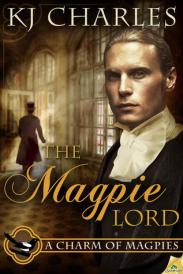My children are avid sticker book consumers. (Bear with me: this is an extended metaphor, not a parenting blog post.)
At first they simply wanted to jam the stickers onto the pages, upside down, off the edges, covering each other in great lumps of shiny paper, just for the pleasure of playing with sticky things.
Then they got a bit older and more careful. Put the penguins in the snow scene, put the pirates on the beach. They set up little bits of staging. “Look, Mummy, the baby dinosaur is going to eat the bird. Look, the pirate’s chopping the other pirate’s head off. Look, the polar bear is going to – I am playing nicely, Mummy!” Even when the sticker scene was long completed, they’d sit there poring over the pages, making up stories about what the absurdly juxtaposed creatures were up to.
Older still, and the sticker books have become more complicated. Now you have to put the sticker in the right place. The pirate has to be applied perfectly over just the right bit of rigging or it looks all wrong. The clothes must be put on the correct dolly in the correct order.
Let’s just consider that. The sticker book’s purpose is to give the child a scene to populate with characters, yet we insist the characters should be applied and arranged only in a certain way, the right way. These dinosaurs have to go in those trees. Those knights only fit if you use them to fight the dragon. The sticker for the Lego dumper truck must be applied over the silhouette of the Lego dumper truck. The boy dolly has to wear the boy clothes. This isn’t play any more, it’s an exercise in form filling. The books where you put the stickers wherever you like and create your own scene are babyish. Big boys and girls follow instructions. Even if the child, half way through a sticker page that was supposed to be fun, looks up and pleads, “Mummy, do I have to finish this?”
I’m sure you see where I’m going. In this case, I have been driven to distraction by the umpteenth repetition of Elmore Leonard’s ‘10 Rules for Writing’, which would be more accurately titled ‘10 Rules for Writing Like Elmore Leonard’, but you can put ‘top ten tips for writers’ into your search engine of choice and come up with any amount of vetoes and restrictions and rules. Let’s just start with his first tip, shall we?
Never open a book with weather.
– Elmore Leonard
To which I have only this to say:
LONDON. Michaelmas Term lately over, and the Lord Chancellor sitting in Lincoln’s Inn Hall. Implacable November weather. As much mud in the streets as if the waters had but newly retired from the face of the earth, and it would not be wonderful to meet a Megalosaurus, forty feet long or so, waddling like an elephantine lizard up Holborn Hill. Smoke lowering down from chimney-pots, making a soft black drizzle, with flakes of soot in it as big as full-grown snow-flakes — gone into mourning, one might imagine, for the death of the sun.
– Charles Dickens, Bleak House
Or again
Never use a verb other than “said” to carry dialogue.
– Elmore Leonard
I’ve ranted about poorly chosen speech verbs myself, but never?
“Shut up,” he explained.
– Ring Lardner
Leonard goes on to say that writers should not go into detail to describe people, places, or things. I’ll just go home now. (In fairness, Leonard knew perfectly well that his rules were for himself, not for everyone. I’m just sick of seeing them repeated like they are a recipe for anything other than his prose style.)
I’m bored of reading text that feels like it’s been run through a set of rules. I’m bored of literary novels by authors that have been through the same Creative Writing MA course and learned to do the same things. I’m bored of genre fiction that knows how genre fiction should be written and does it just like that because it should, not because it wants to. I’m unbelievably bored of books that don’t play.
Of course authors need to learn how to write, which is mostly done by reading, and writing, and by being read, and by taking criticism and learning from it. A writer who doesn’t learn her craft is the child jamming stickers onto the page, and the wallpaper, and the cat.
But when ‘rules’ of writing (of what publishers say the market wants, of what the SFF establishment approves, of what gets a Booker prize nomination, of what this top author or that course dictates as the only good) kill the creativity and individuality and fun of the writer doing her own thing… well, that’s when the readers start to wail, Mummy, do I have to finish this?
